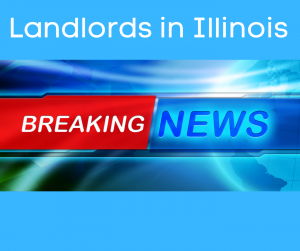Landlords in Illinois, especially those in non-home-rule portions of Cook County, will face a raft of changes this spring in the wake of three state Supreme Court orders issued in late February, and a new ordinance passed by the Cook County Board of Supervisors that takes effect June 1.
The Supreme Court’s orders respectively relate to Governor Pritzker’s eviction moratorium, which has been extended to April 3; how circuit courts can handle an anticipated flood of eviction cases once the moratorium ends; and the use of electronic signatures in eviction proceedings during the COVID-19 pandemic.











